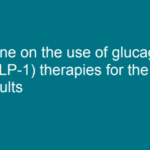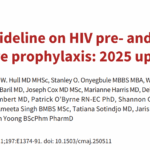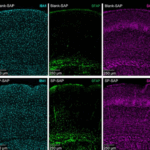Efficacia e sicurezza dei farmaci GLP-1 per il diabete di tipo 2 e l’obesità
Notizie dalla RicercaLo sviluppo di agonisti del recettore del peptide 1 simile al glucagone (GLP-1RA) per il diabete di tipo 2 e l’obesità è stato seguito...
Terapia derivata dalle cellule staminali contro il cancro al fegato resistente al trattamento
Notizie dalla RicercaSecondo uno studio pubblicato su “Cell Stem Cell“, i ricercatori dell’Università della California di San Diego hanno scoperto che...
Nuovo bersaglio terapeutico per il cancro al pancreas
Notizie dalla RicercaI ricercatori del Garvan Institute of Medical Research hanno identificato un potenziale nuovo bersaglio terapeutico per il cancro al...
Scoperto bersaglio per il trattamento del cancro al pancreas
Notizie dalla RicercaUn team dell’Institute of Biochemistry della Kiel University ha trovato un modo per inibire la funzione della proteina MYC che causa i...
Identificato il meccanismo che impedisce l’efficacia delle terapie contro il melanoma
Notizie dalla RicercaIl melanoma maligno è uno dei tipi di cancro più aggressivi. Nonostante i recenti progressi nelle terapie efficaci, i tumori di molti...
Linea guida sull’incontinenza dopo il trattamento della prostata
UrologiaQuesta linea guida sull’incontinenza dopo il trattamento della prostata (IPT) intende facilitare le decisioni di cura e aiutare i medici...
Scoperta la causa principale della malattia infiammatoria intestinale
Notizie dalla RicercaI ricercatori del Francis Crick Institute, in collaborazione con l’UCL e l’Imperial College di Londra, hanno scoperto un nuovo percorso...
Tumore prostata, test della saliva piu’ attendibile del PSA
Notizie dalla RicercaUn test della saliva, in cui un campione può essere raccolto a casa, è più accurato nell’identificare il rischio futuro di cancro alla...
Le statine possono prevenire il cancro bloccando le proteine infiammatorie
Notizie dalla RicercaUn team guidato da ricercatori del Mass General Cancer Center ha scoperto che le statine, farmaci comunemente usati per abbassare il...
Identificazione delle fasi iniziali della formazione del cancro del colon-retto
Notizie dalla RicercaLa ricerca condotta dal Weill Cornell Medicine fornisce nuove prove che la maggior parte dei tumori del colon-retto iniziano con la...
Sviluppato un vaccino promettente per la prevenzione del cancro
Notizie dalla RicercaUna piattaforma sviluppata dall’Oregon Health & Science University per vaccini basati sul citomegalovirus si dimostra promettente...
Linee guida sull’uso di farmaci antiepilettici in gravidanza
EpilessiaL’American Academy of Neurology (AAN), l’American Epilepsy Society (AES), e la Society for Maternal-Fetal Medicine (SMFM) hanno...
Linee guida sulle cure palliative nei pazienti affetti da cancro
Dolore e cure palliativeLo scopo di questa linea guida pubblicata da ASCO è quello di fornire una guida basata sull’evidenza ai medici oncologici, ai pazienti,...
Linee guida su adenocarcinoma dell’intestino tenue
Cancro allo stomacoIl National Comprehensive Cancer Network ® (NCCN ®) ha annunciato la pubblicazione delle nuove linee guida per i pazienti...
Identificata una nuova forma genetica della malattia di Alzheimer
Notizie dalla RicercaI risultati di questo studio condotto dai ricercatori del Research Area on Neurological Diseases, Neuroscience, and Mental Health at the...




















